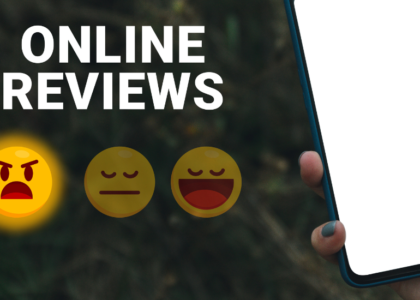Is Blogging Actually Important?
Blogging is a great way to connect with potential customers, build brand awareness, and generate leads. But is it right for every small business?
In this article, we’ll explore the benefits and drawbacks of blogging for small businesses, and help you decide if it’s the right strategy for your company.
Benefits of Blogging for Small Businesses
There are many benefits to blogging for small businesses, including:
- Increased website traffic: When you blog regularly, you’re providing fresh content for search engines to index. This can help you attract more visitors to your website, which can lead to more leads and sales.
- Improved SEO: Blogging can help improve your website’s SEO, which means your website will be more likely to appear high in search engine results pages (SERPs). This can help you attract more organic traffic to your website.
- Brand awareness: Blogging is a great way to build brand awareness and establish yourself as an expert in your industry. When you write informative and engaging blog posts, you’re positioning yourself as a thought leader in your field. This can help attract new customers and build trust with existing customers.
- Lead generation: Blogging is a great way to generate leads for your business. By offering valuable content on your blog, you can attract visitors who are interested in what you have to offer. You can then capture their contact information through lead magnets, such as email signup forms or webinar registrations.
- Customer engagement: Blogging is a great way to engage with your customers and build relationships with them. When you write blog posts that address their pain points and offer solutions, you’re showing them that you understand their needs. This can help you build loyalty and encourage repeat business.
Drawbacks of Blogging for Small Businesses
While there are many benefits to blogging for small businesses, there are also some drawbacks to consider:
- Time commitment: Blogging can be a time-consuming activity. If you’re not prepared to commit the time and effort to creating high-quality blog posts, then blogging may not be the right strategy for your business.
- Technical expertise: If you’re not familiar with blogging platforms or SEO, then you may need to invest in some training or hire a professional to help you.
- Results take time: It takes time to build a successful blog. Don’t expect to start seeing results overnight. You need to be patient and consistent with your blogging efforts in order to see results.
Should You Blog?
So, should you blog for your small business? The answer depends on your specific goals and objectives. If you’re looking to increase website traffic, improve SEO, build brand awareness, generate leads, or engage with customers, then blogging can be a great way to achieve those goals.
However, if you’re not prepared to commit the time and effort to creating high-quality blog posts, or if you’re not familiar with blogging platforms or SEO, then blogging may not be the right strategy for your business.
Ultimately, the decision of whether or not to blog is up to you. But if you’re considering blogging for your small business, be sure to weigh the benefits and drawbacks carefully before making a decision.
Related Statistics for Blogging
Marketers who prioritize blogging efforts are 13x more likely to see positive ROI
Source: HubSpot
Companies that publish 16+ blog posts per month get nearly 3.5x more traffic than those that publish 0-4 monthly
Source: HubSpot
Companies that publish 16+ blog posts per month generated 4.5x more leads than companies publishing 0-4 monthly
Source: HubSpot
On average, companies with blogs produce 67% more leads per month than those without
Source: Demand Metric
Blogging is responsible for 434% more indexed pages and 97% more indexed links
Source: Demand Metric
69% of companies use an editorial calendar for blog posts
Source: Curata
69% of marketers say they plan to increase their blogging frequency next year
Source: Social Media Examiner
82% of marketers who blog consistently see positive ROI from inbound efforts
Source: State of Inbound
The average blog post length is 1,050 words
Source: Orbit Media
The average word count of top ranked content in Google is between 1,140-1285 words
Source: SearchMetrics
How to Start Blogging for Your Small Business
If you’ve decided that blogging is right for your small business, here are some tips on how to get started:
- Choose a blogging platform. There are many different blogging platforms available, such as WordPress, Blogger, and Tumblr. Choose a platform that’s easy to use and that offers the features you need.
- Choose a domain name and hosting provider. Your domain name is your website’s address on the internet. Your hosting provider is the company that stores your website’s files and makes them accessible to visitors.
- Design your blog. Your blog’s design should be professional and visually appealing. You can use a free or paid theme to design your blog.
- Start writing blog posts. Your blog posts should be informative, engaging, and well-written. They should also be optimized for SEO.
- Promote your blog. Once you’ve started writing blog posts, you need to promote your blog so that people can find it. You can promote your blog through social media, email marketing, and guest blogging.
Conclusion
Blogging can be a great way to grow your small business. By following the tips above, you can start blogging for your small business and start seeing results.




